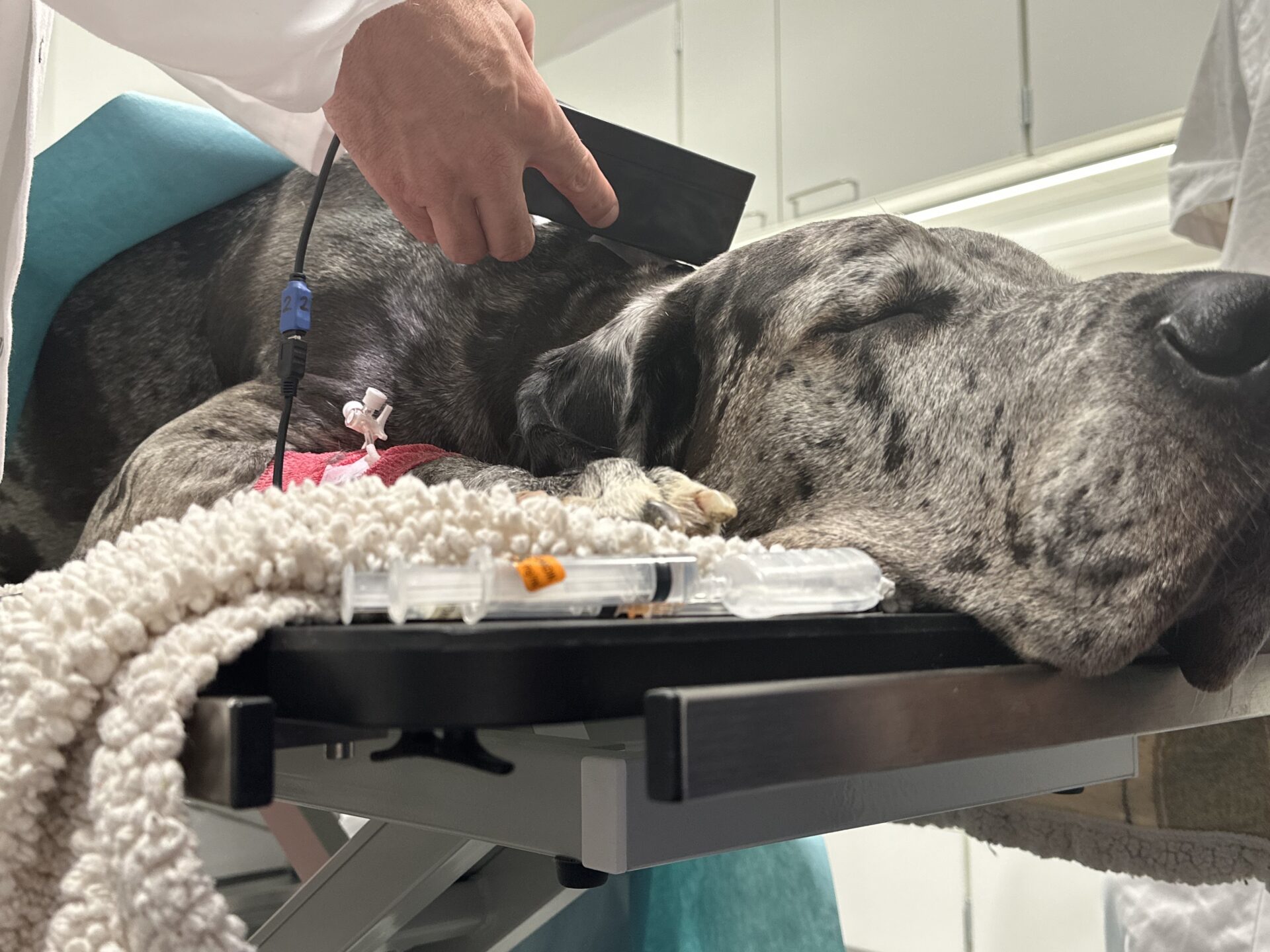Press releases
LIFE – Successfully completed nine weeks of longevity trials

Bergen, Norway, 21 August 2024: Today, Lifecare ASA (LIFE), a clinical stage medical sensor company developing the next generation Continuous Glucose Monitor (CGM), can announce positive results from nine weeks of sensor longevity trials.
Reference is made to press releases 18 June 2024 when the company initiated the trials with wireless readout. The Sencell sensor that has been implanted under the skin of the dog Elli has now passed an operational lifetime of two months and still counting. During these months, the Lifecare Veterinary team located at the Norwegian University of Life Sciences (NMBU) has received large amounts of data. This validates the functionality of the Sencell sensor and the sensor technology itself.
The main purpose of the first sensor of the longevity trial is to investigate and confirm operational lifetime in a longevity perspective. In this context, the primary expectations of the study are to confirm the longevity of the physical sensor properties, and that the sensor biocompatibility ensures that no negative body reactions occur in a longevity perspective. The Team at Lifecare Veterinary monitors the first pet-patient Elli on a daily basis, including reports from her owner. Elli is in good health and shows no signs of discomfort related to the implant.
– We are very excited to conclude two months of sensor longevity under Elli’s skin. The results from the study, which has been ongoing throughout the summer, is in line with what we expected. However, it is very encouraging to achieve the positive results of longevity in real-world settings. As we have passed two months of operational lifetime, based on a wireless readout, we are proud to conclude that the initial part of the longevity study is a success, says CEO Joacim Holter at Lifecare.
– Previous in-vitro studies have confirmed sensor lifetime of six months. With this initial conclusion of more than 9 weeks operational lifetime in vivo – in real life settings – we exceed the operational lifetime of all the major CGM systems in the market with a factor of 4,5 or more. This is, of course, interesting in a future commercial perspective, says Holter
– Alongside the initial part of the longevity study, we are preparing to enroll additional patients in the study to confirm these first results, and to intensify the study beyond sensor functionality, focusing sharper on glucose readings from both healthy dogs and dogs with diabetes. With this approach we expect to gain increased understanding of the sensor functionality in real life conditions, says Managing Director Jo Amundstad at Lifecare Veterinary.
The approved study protocol allows us to implant the Sencell for a period of 12 weeks, after which it will be removed and specific studies on the potential tissue impact will be evaluated. Due to the encouraging course of this initial part of the study, we are currently in dialog with the regulatory authorities to increase the implant period to 24 or more weeks before removal, says Amundstad.